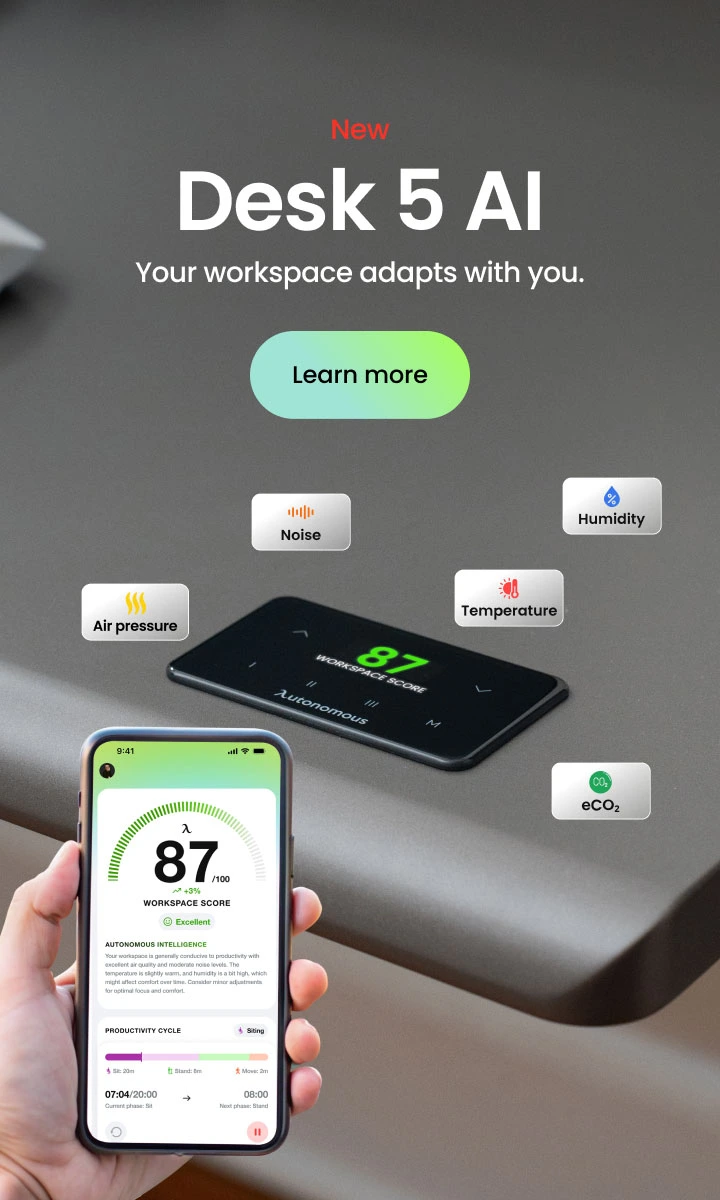
Table of Contents
Hydration is essential for maintaining your health and productivity, yet it’s often overlooked. Many people, especially office workers, find themselves reaching the afternoon feeling sluggish because they’ve forgotten to drink enough water. The question is, how much water should I drink in a day to stay hydrated and feel my best? While the general guidelines recommend about 2.7–3.7 liters per day, individual hydration needs vary based on factors like age, activity level, and climate. In this guide, we’ll explore everything you need to know about staying hydrated and how tools like a water drink calculator can help you hit your goals.
How Much Water Should You Really Drink in a Day?
When it comes to hydration, there's no one-size-fits-all answer. The amount of water a person needs can vary depending on a variety of factors such as body weight, activity level, and climate. However, there are general guidelines that can help you estimate how much water you should drink in a day.
The National Academies of Sciences, Engineering, and Medicine suggests a general water intake of:
- Men: Approximately 3.7 liters (125 oz) of total water intake per day, including water from beverages and food.
- Women: Around 2.7 liters (91 oz) per day, including all fluids.
These guidelines take into account all sources of water, including food, beverages like coffee or tea, and of course, plain water. It’s important to note that these are general recommendations, and your individual needs may vary based on your lifestyle.
Factors That Affect Your Water Intake
- Activity Level
Physical activity increases hydration needs. For every hour of exercise, drink an extra 16–24 oz to replenish fluids lost through sweat.
- Climate and Weather
Hot or humid climates lead to increased sweating, requiring more water to stay hydrated. Even without exercise, you’ll need extra hydration in warmer conditions.
- Age and Gender
Men typically need more water due to higher muscle mass. As you age, your body’s ability to conserve water decreases, making hydration even more important.
- Health Conditions
Conditions like kidney disease or diabetes can alter hydration needs. Consult your doctor if you have health conditions affecting your water intake.
- Diet
Foods high in sodium, sugar, or caffeine can cause fluid loss, while water-rich foods like fruits and vegetables can help meet your hydration needs.
.webp)
Signs You’re Not Drinking Enough Water
- Dry Mouth and Thirst
The most obvious sign of dehydration is feeling thirsty or having a dry mouth. This happens when your body’s water levels drop below what’s needed to function properly. Thirst is your body’s natural way of telling you that it’s time to hydrate.
- Fatigue and Lack of Energy
If you find yourself feeling unusually tired, sluggish, or fatigued during the day, dehydration could be the cause. Water plays a key role in maintaining energy levels by aiding in the transportation of nutrients and the removal of waste. Even mild dehydration can lead to significant drops in energy and focus.
- Headaches and Migraines
Dehydration is a leading cause of headaches. When you're not drinking enough water, the cells in your body begin to shrink, which can lead to tension and pain in the head.
- Dark Urine or Decreased Urine Output
Another sign that you might be dehydrated is if your urine becomes darker in color or if you're urinating less frequently. Dark yellow or amber urine is a strong indicator that your body is holding onto fluids because it’s not getting enough. Ideally, your urine should be pale yellow, which indicates proper hydration.
- Dry Skin
If your skin feels dry or flaky, dehydration could be the culprit. Water helps maintain skin elasticity and moisture. When you’re dehydrated, your skin may lose its softness and begin to look dull or rough. Drinking more water helps keep your skin healthy and hydrated from the inside out.
- Constipation
Water is essential for digestion and the movement of food through your intestines. When you're not drinking enough, your digestive system can slow down, leading to constipation. Drinking water regularly helps maintain regular bowel movements and keeps your digestive system functioning properly.
- Brain Fog and Difficulty Concentrating
Dehydration can have a noticeable impact on your mental clarity. When you're not hydrated, it can become more difficult to concentrate, and you might experience brain fog or mental fatigue. Since water is crucial for cognitive function, maintaining good hydration levels will help keep your brain sharp and focused.
- Muscle Cramps
If you’re experiencing muscle cramps or spasms, dehydration may be to blame. Water helps regulate the balance of electrolytes in your muscles, and when you're dehydrated, this balance is disrupted. Proper hydration is key to preventing muscle cramps, especially if you're active or spending long hours sitting at a desk.
How to Track Your Water Intake and Stay Hydrated
1. Use a Water Drink Calculator
One of the easiest ways to stay on track is by using a water drink calculator. These tools take your age, gender, activity level, and climate into account to give you a personalized hydration goal. Whether you’re working in an office, hitting the gym, or just moving through your daily tasks, a water drink daily calculator ensures that you’re drinking the right amount to match your unique needs.
A water drink calculator can also help you adjust your intake as needed, for example, if you’re traveling or experiencing particularly hot weather. These calculators are a great way to tailor hydration to your lifestyle and stay consistent without guesswork.
2. Set Regular Reminders
If you struggle to remember to drink throughout the day, setting up hydration reminders can make a huge difference. You can use a drink water reminder app on your phone or, even better, use a water tracker for bottle like Hydrate AI that gives smart reminders at just the right times.
For instance, Hydrate AI can gently nudge you with a soft light or vibration when it’s time to take a sip. This technology learns your habits and adjusts reminders according to your routine, so you don’t have to worry about constantly checking the clock.
3. Track Progress with Hydration Streaks
A great motivator for staying on top of your water intake is tracking your progress with habit streaks. When you use a tool like Hydrate AI, you can unlock milestones and celebrate small victories as you stay consistent with your hydration. Over time, this becomes a habit you won’t have to think twice about.
You can also use a water drink daily calculator to track how close you are to hitting your hydration goal each day. Some apps will even send you reminders and rewards when you hit certain milestones, making hydration feel like a fun and rewarding challenge.
4. Replace Sugary Drinks with Water
One of the biggest barriers to hydration is the tendency to reach for sugary drinks like soda, juice, or coffee throughout the day. These beverages don’t hydrate as effectively and can actually contribute to dehydration over time.
If you’re looking to stay healthy at work, consider switching to water as your go-to drink. If plain water isn’t your thing, you can add a splash of lemon, cucumber, or mint to give it a little flavor.
5. Eat Hydrating Foods
Water isn’t just about drinking liquids; you can also get hydration from your food. Many fruits and vegetables, such as cucumbers, watermelon, and oranges, have a high water content. Incorporating these foods into your diet can supplement your daily water intake and help you stay hydrated.
Hydration Tips for Success:
- Hydrate first thing in the morning: Start your day with a glass of water to kickstart your metabolism.
- Drink before meals: Having water before meals can help with digestion and prevent overeating.
- Set hydration goals with your hydration tracker: Track your intake and set daily reminders so hydration at work becomes a habit.

FAQs
How much water should I drink a day in oz?
The recommended daily water intake is around 125 oz (3.7 liters) for men and 91 oz (2.7 liters) for women, according to the National Academies of Sciences. This includes all fluids consumed throughout the day, not just plain water. Using a water drink calculator can give you a more personalized number based on your body weight and activity level.
How much water should I drink a day in litres?
For most adults, the ideal daily water intake is around 2.7 to 3.7 liters. However, your exact needs may vary depending on factors like activity level, climate, and health. A water drink daily calculator can help you adjust your target more accurately.
How much water should I drink a day in ml?
This equals approximately 2700–3700 ml of water per day for most adults. If you’re active, live in a hot climate, or have specific health needs, your required intake may be higher.
How much water should I drink a day in gallons?
Roughly 0.7–1 gallon per day is a good range for most adults. For easy reference, 1 gallon equals about 3.8 liters or 128 oz. Adjust this based on personal factors and listen to your body’s signals.
How much water should I drink a day minimum?
The minimum daily water intake to support basic bodily functions is typically around 1.5 liters (50 oz). However, this can vary depending on your health, environment, and activity level. Drinking less than this may increase your risk of dehydration.
How much water should I drink in 8 hours?
If you’re aiming to meet the general daily recommendation, drinking 8–12 oz of water every hour during your waking hours can help you stay hydrated without overloading your system. A hydration tracker can help keep this steady throughout your workday.
Is 500ml of water a day enough?
No, 500 ml (about 17 oz) is not enough for a healthy adult. This amount falls well below the daily minimum and may lead to dehydration over time. Most people need at least 2–3 liters daily to stay properly hydrated.
Is 3 bottles of water a day enough?
It depends on the size of the bottle. If your bottle is 16 oz, then three bottles equal about 1.4 liters, which is likely not enough for most adults. If your bottle is 32 oz, then three bottles equal about 2.8 liters, which may be sufficient for some people. A water drink calculator can give a more precise number.
How much coconut water should I drink in a day?
Coconut water can support hydration but should be consumed in moderation. Around 1–2 cups (240–480 ml) per day is generally fine for most people. It contains electrolytes but also natural sugars, so it shouldn’t replace plain water entirely.
How much lemon water should I drink in a day?
Drinking 1–2 glasses of lemon water daily can provide hydration and vitamin C benefits. However, it’s best to use a straw or rinse your mouth afterward to protect your teeth from acidity.
How much alkaline water should I drink in a day?
Most people can drink 2–3 liters of alkaline water safely each day. It’s best to balance alkaline water with regular water and consult your doctor if you have health conditions, as excessive consumption may upset your body’s pH balance.
How much detox water should I drink in a day?
Detox water is essentially flavored water with fruits or herbs, so you can drink it as part of your daily water intake — around 2–3 liters total depending on your needs. Just avoid excessive ingredients that can cause bloating or discomfort.
How much water should I drink a day for my weight?
A simple rule of thumb is to drink half your body weight in ounces.
- For 50 kg (110 lbs) → around 55 oz (1.6 liters)
- For 55 kg (121 lbs) → around 60 oz (1.8 liters)
- For 60 kg (132 lbs) → around 66 oz (2 liters)
- For 160 lbs (72 kg) → around 80 oz (2.4 liters)
- For 240 lbs (109 kg) → around 120 oz (3.5 liters)
A water drink daily calculator can refine this number even more precisely based on additional factors.
How much water should I drink in a day as a woman?
For most women, the recommended daily intake is 2.7 liters (91 oz), including fluids from beverages and food. However, women who are pregnant, breastfeeding, or physically active may need more.
How much water should I drink a day in summer?
During the summer months, your body loses more water through sweat. It’s recommended to increase your daily intake by at least 500 ml to 1 liter depending on your activity level and exposure to heat. A hydration tracker can help ensure you stay on top of your hydration even on the hottest days.
Conclusion
Understanding how much water you should drink in a day is more than just following a number — it’s about building a simple healthy habit that supports your body’s natural rhythm. Proper hydration improves focus, boosts energy, helps regulate temperature, supports digestion, and even improves skin health.
The ideal amount of water varies from person to person, which is why using a water drink calculator can be such a powerful tool. It takes into account your weight, activity level, and lifestyle to give you a personalized daily hydration target. If you want an even simpler way to stay consistent, pairing that with a hydration tracker can make the habit effortless.
Staying hydrated doesn’t have to be overwhelming. By understanding your body’s needs and using smart tools like a water drink daily calculator, you can turn hydration into a natural part of your day — not just something you try to remember. A few extra sips can make a real difference in how you feel and perform.
.svg)










